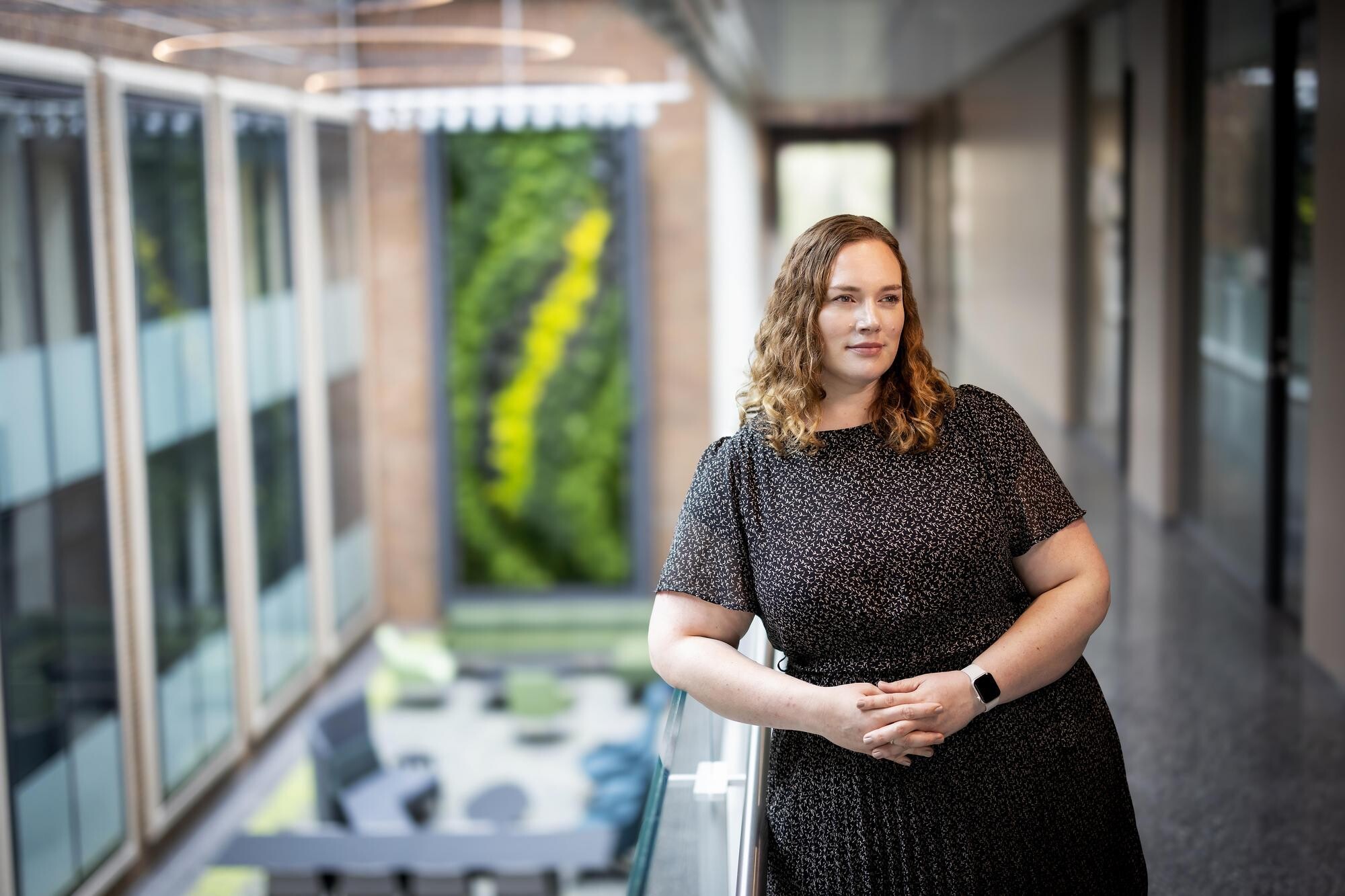
(From left) Doctoral student Hannah Yamagata, research assistant professor Kushol Gupta, and postdoctoral fellow Marshall Padilla holding 3D-printed models of nanoparticles.
(Image: Bella Ciervo)
3 min. read

Lauren Nelson Hyppolite grew up around educators; her mother was a teacher, instilling in her a lifelong appreciation for learning. This shaped Hyppolite’s desire to enter the field of education in some capacity. The path to her current role as managing director of Research, Centers, and Academic Initiatives at the Wharton School was gradual but intentional.
Prior to working at Penn, Hyppolite pursued a graduate degree in higher education and administration. Initially, she worked at nonprofits in Philadelphia, connecting high school students with greater access to educational opportunities. Although she enjoyed these roles, Hyppolite often reflected upon the fulfillment she got from learning and growing in college settings, so she pivoted to supporting university-level students.
In 2018, Hyppolite accepted a position as director of operations at Wharton, helping to support the school’s analytics research centers. By 2021, she transitioned into her current managing director role, overseeing Wharton’s various research centers and leading the school’s AI-related co-curricular and research programs.
“I have a pulse on what’s happening across the school, and I love building connections between people,” says Hyppolite.
One of Hyppolite’s primary responsibilities is to help design, implement, and refine programs that prepare students for AI-driven business careers after graduating from Penn.
“We’re building cutting-edge programs for students to develop the skills they’re going to need as the workforce changes,” Hyppolite says.
As managing director, Hyppolite oversees a team of nearly 20 staff members who help support nine research centers and labs at Wharton, including those under the recently formed Wharton AI & Analytics Initiative. Her team works on student and faculty engagement, corporate relations, and event planning. They also build hands-on, interactive educational programs that immerse students in practical skill development and portfolio-building projects.
“With the launch of the Wharton AI and Analytics Initiative, we’re tasked with helping to build collaboration at Wharton and connect the various AI initiatives across the school,” Hyppolite says.
Many students and recent alums tell Hyppolite they have referred to their Wharton AI & Analytics Accelerator project examples in job interviews. She describes these as “full circle” reminders of the real-world impact this work has on the lives and careers of Penn students.
“Some of the most exciting parts of my job are developing workshops or programming that prepare students to become business leaders when they enter the job market,” Hyppolite says.
In her role, Hyppolite also supports Wharton faculty by helping to coordinate funds for project proposals. For example, Hyppolite and her team assisted Kevin Werbach, Wharton professor of legal studies and business ethics, kickstart the Accountable AI Lab and host a launch event at Perry World House. The new lab, which focuses on ethical and responsible use of AI across various industries, helps to position Wharton as “an industry leader in AI research,” Hyppolite says, which she shares has been “exciting to see.”
Faculty also use funding from Hyppolite’s department to enhance their curricula. “We’ve been able to give funding to faculty members so that they can innovate their classes and incorporate more AI tools into the curriculum,” Hyppolite says, referencing courses like Wharton professor Stefano Puntoni’s AI in Our Lives.
Hyppolite’s passion for leading academic research initiatives at Wharton is rooted in her lifelong knack for knowledge and education.
“My overall love of learning and reading and just trying to be as informed as possible—that’s really what drives my interest in supporting the initiatives that I do,” Hyppolite says.
As the field of AI rapidly evolves, Hyppolite works to prepare students and faculty to integrate ethical considerations and social accountability into their AI-driven work.
“I hope that we’re equipping students to lead in this age of AI, and not just to lead organizations, but to lead them thoughtfully and responsibly,” Hyppolite says. “We are getting students to critically think about this technology, how it can be best deployed, and how it can be democratized so that people have access to AI—and that they’re ready for this next change in the workforce.”
At the core of Hyppolite’s impactful work at Penn is a principled goal: Ensure that Wharton-led research is shared globally and made useful for the benefit of society.
“My hope is that we’re helping to put research out in the world that benefits people’s lives,” Hyppolite says.

(From left) Doctoral student Hannah Yamagata, research assistant professor Kushol Gupta, and postdoctoral fellow Marshall Padilla holding 3D-printed models of nanoparticles.
(Image: Bella Ciervo)

Jin Liu, Penn’s newest economics faculty member, specializes in international trade.
nocred

nocred

nocred